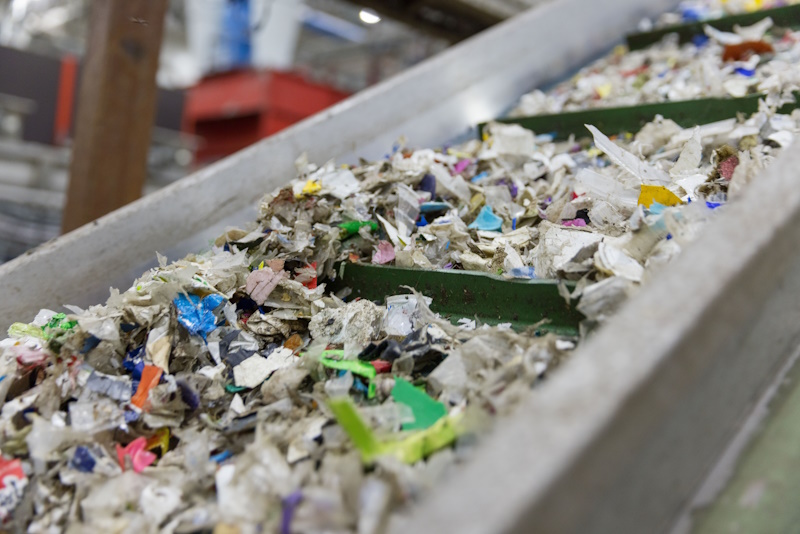
News
18 March 2024
Crisis in plastic sorting and recycling industry
Industry sounds the alarm: circular economy and climate goals in danger, production of recycled material stalls
The Dutch Waste Management Association (DWMA) is sounding the alarm. Dutch and European plastic sorting and recycling facilities are facing major difficulties. The demand for recycled plastic from the plastic processing industry is insufficient for profitable recycling. Turnover is stagnating, stocks of plastic waste are mounting and recycling companies are winding down production. Jobs are in danger. The root of the problem lies in cheap imports of virgin plastic from Asia and America. The industry has sent an urgent letter to the caretaker environment minister Vivianne Heijnen with three suggestions. One: support the market price of recycled plastic with a fixed amount per tonne. Two: make the government’s circular procurement objectives consistent with plastic recycling targets. Three: introduce a carbon credit system for using recycled plastic in products.
‘We gladly support our government’s climate ambitions. Circularity is a high priority in our industry,’ stresses Marc den Hartog, chair of the DWMA’s Recycling section and managing director of Commercial Waste at Renewi Nederland, ‘but it takes two to tango. We’re asking the minister and the next Government to help us get through this crisis. Demand for Dutch and European recycled plastic is dwindling due to a combination of imports of cheap virgin plastic, particularly from Asia and the United States, the fall in demand for plastic products made in Europe and the strict rules for recycling plastic packaging.’

Recycled content obligation
The European Union (EU) has updated the Waste Shipment Regulation (WSR) per 1 January 2024, introducing stricter rules for exporting plastic waste outside the EU and to non-OECD countries (Organisation for Economic Co-operation and Development). This means that from two to three years after the entry into force of this revision even more European plastic waste will have to be processed in Europe. One measure for ensuring sufficient demand for European recycled plastic is the EU plastic ‘recycled content obligation’, which requires manufacturers to incorporate a minimum percentage of recycled plastic in their products from 2030. Dutch manufacturers of plastic products may have to meet this target from as early as 2027. ‘We want to see a level playing field in Europe so that all waste collectors and manufacturers can compete on a fair basis,’ says Den Hartog. ‘In the next six years we must find a structural solution to compensate for the price difference between virgin plastic and imported recycled plastic on the one hand and European recycled plastic on the other. As concluded in a recent study by KPMG, European manufacturers should source much more recycled plastic from Europe. We should act more in line with the principles of circularity, environmental protection and job preservation.’
Urgent letter
The DWMA has sent an urgent letter to the caretaker Dutch environment minister Vivianne Heijnen. The Association has made three suggestions.
- Support the market price of recycled plastic (the raw material for recycled products) with a fixed amount per tonne. The market for recycled plastic must be supported until the desired recycled content obligation for plastic comes into force.
- Make government circular procurement objectives consistent with plastic recycling targets. The Dutch government is a major market player accounting for about 15% of all purchases in the Dutch economy, so it can make a big difference by boosting the demand for recycled plastic. To ensure a better balance between supply and demand, the government’s circular procurement objectives must at least be in line with the plastic recycling targets (Netherlands: 50% plastic packaging waste by 2025 and 100% plastic by 2030; EU: 50% plastic packaging waste by 2025).
- Introduce a carbon credit system for using recycled plastic. Plastic recycling makes a major contribution towards achieving climate targets, but the climate benefits of using recycled plastic in products are underappreciated. The DWMA argues for the introduction of a carbon credit system so that reducing carbon emissions is rewarded (similar to a green certificate).
Translation
Derek Middleton
